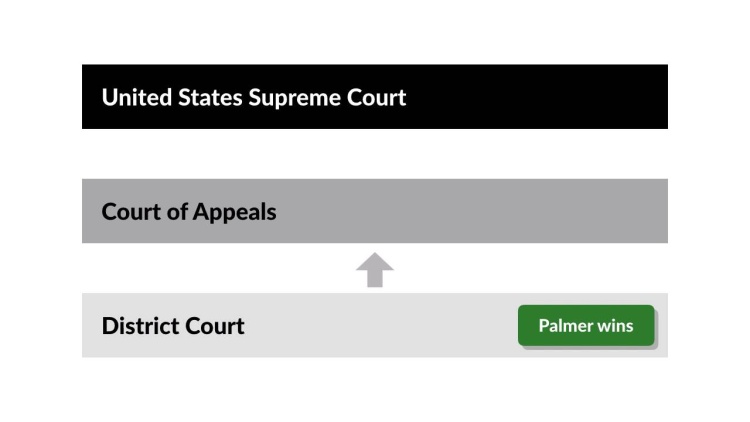Palmer v. Thompson
United States Supreme Court
403 U.S. 217 (1971)
- Written by Megan Petersen, JD
Facts
In 1962, the City of Jackson, Mississippi, operated five public parks, swimming pools, and other public facilities on a racially segregated basis. Four of the swimming pools were designated for use by Caucasians only. The fifth pool was designated for use by African Americans only. Several African Americans challenged the segregation, alleging that it violated the Thirteenth and Fourteenth Amendments to the United States Constitution. The district court hearing the case held the segregation unconstitutional but refused to issue an injunction to stop the practice. The court of appeals affirmed, and the United States Supreme Court denied certiorari. The city then proceeded to desegregate these public facilities but declined to operate its swimming pools on a desegregated basis. The City closed four of its pools. Palmer, an African American resident of Jackson, and several other African American residents (plaintiffs) brought suit against Thompson (defendant), a City of Jackson official, in federal district court challenging the closing of the pools and seeking to convince the city to reopen them on a nonsegregated basis. The district court denied this request, and the court of appeals affirmed. The United States Supreme Court granted certiorari.
Rule of Law
Issue
Holding and Reasoning (Black, J.)
Concurrence (Burger, C.J.)
Concurrence (Blackmun, J.)
Dissent (Marshall, J.)
Dissent (Douglas, J.)
Dissent (White, J.)
What to do next…
Here's why 899,000 law students have relied on our case briefs:
- Written by law professors and practitioners, not other law students. 47,000 briefs, keyed to 994 casebooks. Top-notch customer support.
- The right amount of information, includes the facts, issues, rule of law, holding and reasoning, and any concurrences and dissents.
- Access in your classes, works on your mobile and tablet. Massive library of related video lessons and high quality multiple-choice questions.
- Easy to use, uniform format for every case brief. Written in plain English, not in legalese. Our briefs summarize and simplify; they don’t just repeat the court’s language.





